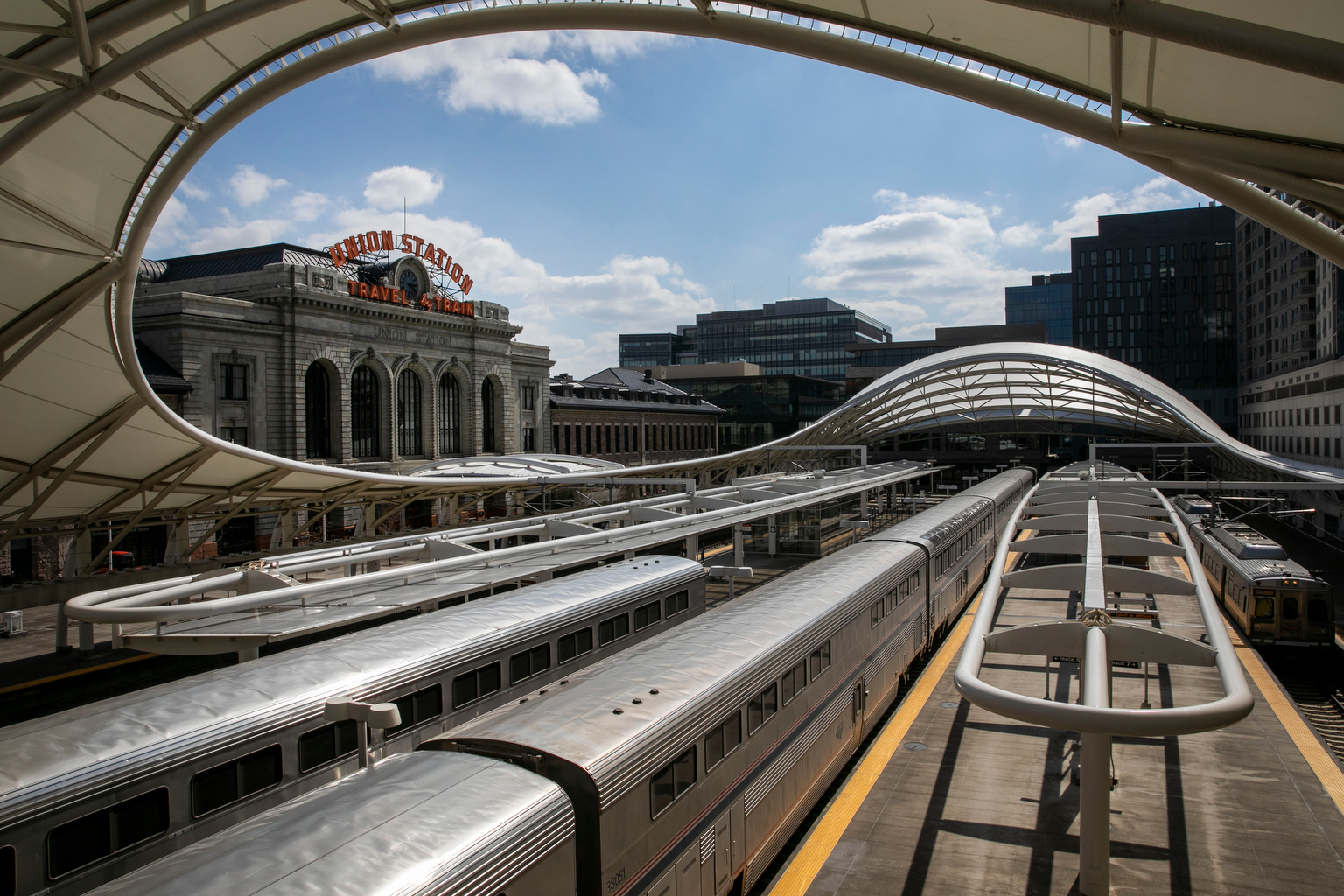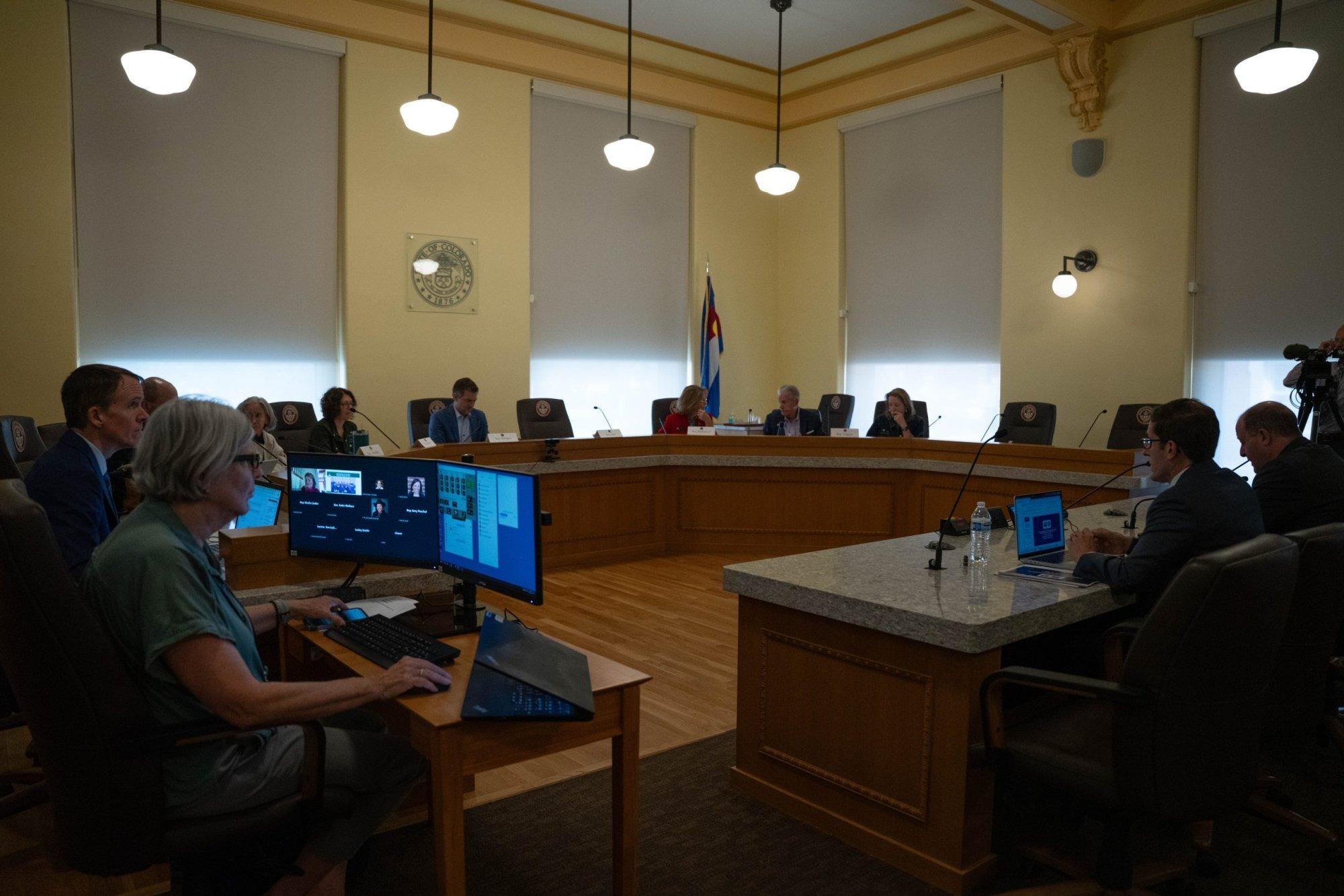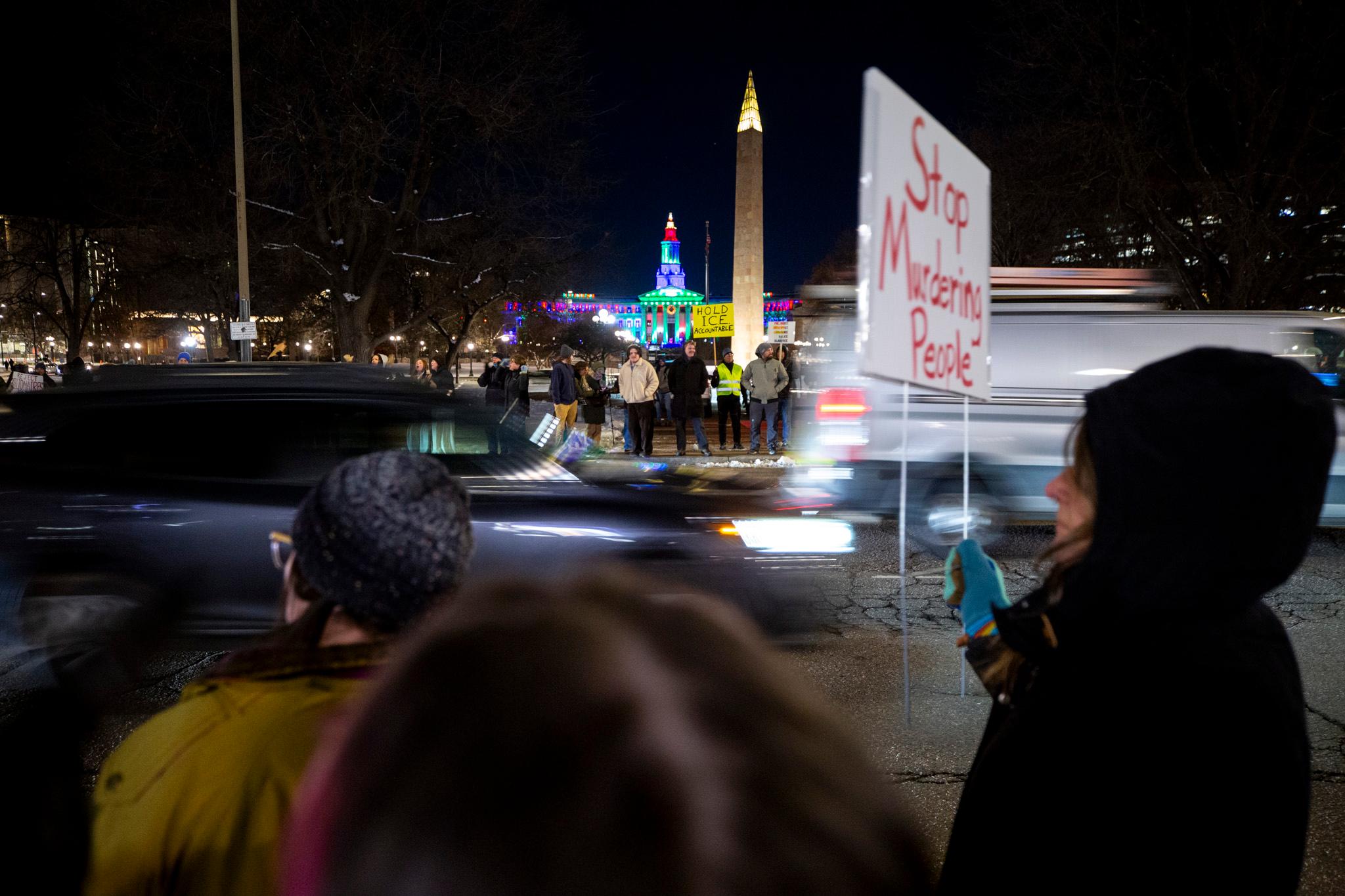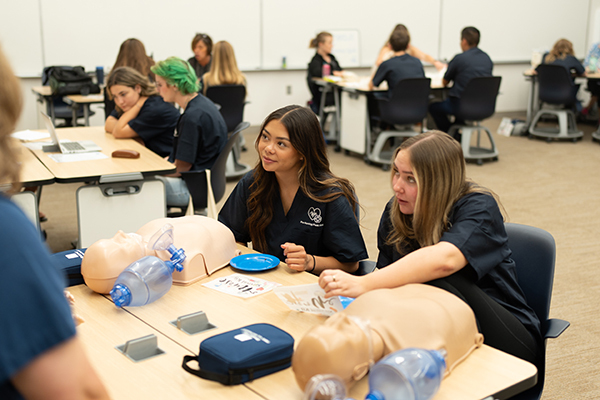
GOP Rep. Lauren Boebert has concerns about the Front Range Passenger Rail project and she’s taking them to the Department of Government Efficiency.
Earlier this month, Boebert wrote to DOGE head Elon Musk and Secretary of Transportation Sean Duffy asking for an inquiry into the project and calling for any federal funding for it to be pulled.
“I believe that this is absolutely wasteful. It’s a boondoggle of a project. It’s tens of billions of dollars we don’t need to be funding,” Boebert told CPR News. In her letter, she added that the project lacked transparency and expressed concerns that the state might use eminent domain to build it out.
The Front Range Passenger Rail service is already years in its development and still years away. The idea would be to build out high-speed intercity rail connecting Pueblo, Colorado Springs, Denver and Fort Collins, as well as smaller cities such as Castle Rock and Longmont in between.
Boebert, who represents the 4th Congressional District, said she’d rather see improved road infrastructure and argued that the rail project could cost upwards of $14 to $20 billion. This is a top-end estimate for a more expansive line that would possibly connect to Wyoming to Trinidad or further south. The starter service the state is currently pursuing has a much lower price tag, ranging from $3 to 3.5 billion.
“If this is something Governor Polis wants to do, then have it. Talk to the state legislature there, but the federal government has no business in that,” Boebert said.
So far, federal contributions to the Front Range Passenger Rail Project have been small and sporadic.
In 2020, then Sen. Cory Gardner and Sen. Michael Bennet touted a $225,000 grant to CDOT for a feasibility study for Amtrak’s Southwest Chief and the Front Range Passenger Rail Commission. The state then received about $500,000 through the Bipartisan Infrastructure law in 2023 to help development efforts.
Separately in October 2024, Colorado received $66.4 million to improve freight train safety and expand some rail corridors northwest of Denver. State officials hope that effort could also help passenger rail down the line.
“There are no federal funds planned for the construction of front range passenger rail, nor are we aware of the need for use of eminent domain,” a spokesperson for Polis told CPR News in a statement, adding the governor is working with local governments to “provide the lowest cost option for passenger rail using existing freight lines – particularly focused on freight lines that are underutilized due to changes in coal transportation and where there is broad community support.”
However, Boebert is not the only member of Colorado’s congressional delegation opposed to the idea of Front Range Rail. GOP Rep. Jeff Hurd said rural Coloradans don’t want “vanity projects like a multi-billion-dollar train.”
“We need investments in safe bridges, better interstates, clean drinking water, and expanded roadways that actually serve rural Colorado,” Hurd said in a statement. “I support any efforts to claw back wasteful spending on progressive pet projects so we can get back to making critical investments in real priorities.”
Hurd represents the vast 3rd Congressional District, which covers western and southern Colorado, including the southern stop of the line, Pueblo.
Pueblo officials have long pushed for a return of passenger rail service to their region. In late March, Pueblo County Commissioners approved a rail station plan.
GOP Rep. Jeff Crank from Colorado Springs did not respond to a request for comment, but a spokesperson for the city said, “Colorado Springs is supportive of the Front Range Passenger Rail and the greater connectivity it could provide.”
Democratic Rep. Joe Neguse said communities along the line are “deeply invested” in the project and the opportunities, economic growth and convenience that would come with it.
He doesn’t see the future as either roads or rail.
“I think all options ought to be on the table,” Neguse told CPR News, pointing to support for grants through the Bipartisan Infrastructure Law, micro transit grants and rail. “My colleagues on the other side of the aisle are gutting all of those programs. So, it's a bit rich to hear them complain about passenger rail, for example, when they refuse to allocate any new dollars for basic road improvements. And from my perspective, that's not in the best interest of our state.”
Sen. John Hickenlooper added, “North-South rail in Colorado has been a great attraction for a long time. And I continue to hope that we can find a way to do that economically, so that it works.”
Front Range Rail has been an evolving priority for Colorado’s leaders
The push for the project comes from the state’s projected growth. In the next 30 years, it’s estimated that an additional 3 million people will live and commute along the Front Range. Rail would be one alternative to prevent more congestion on I-25.
The state legislature created the Front Range Passenger Rail District in 2021 and passed a bill last year to improve the efficiency of the district.
But the project has been slow-moving and the leader of the district left last fall as it faced a funding shortfall.
The Regional Transportation District, Colorado Department of Transportation and the rail district are currently working together to get service running between Denver and Fort Collins by 2029, at an estimated start-up cost of $800 to $900 million.
But while the Federal Rail Administration during the Biden Administration included Colorado’s passenger rail project as a transit corridor priority, it’s unclear if that will continue under the Trump Administration.
Still, state officials believe there is a demand for more rail and point to the Winter Park ski train as an example. This past winter when the state lowered prices and boosted service, people booked more than 40,000 trips, compared to approximately 16,000 last season.
Funding for public media is at stake. Stand up and support what you value today.









